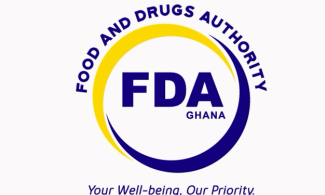
Ghana's Food and Drugs Authority licensed the use of the University of Oxford-developed and Serum Institute of India PvT Ltd (SIIPL)-manufactured and scaled up R21/Matrix-MTM malaria vaccine, leveraging Novavax's adjuvant technology.
An African country, Ghana has become the first country in the world to approve the use of R21/Matrix-M malaria vaccine developed by the University of Oxford and manufactured by the Serum Institute of India.
Ghana's Food and Drugs Authority licensed the use of the University of Oxford-developed and Serum Institute of India PvT Ltd (SIIPL)-manufactured and scaled up R21/Matrix-MTM malaria vaccine, leveraging Novavax's adjuvant technology.
This marks a critical step towards reducing over half a million malaria-related deaths annually and improving the health outcomes of millions of people in the African continent and beyond as it marks the first regulatory clearance for the R21/Matrix-M malaria vaccine for use in any country.
The vaccine's manufacturer, the Serum Institute of India, has confirmed its willingness to produce the vaccine doses at both speed and scale, with potential manufacturing capacities of more than 200 million doses annually.
The successful registration, according to a statement by a Senior Associate, Sofija Dilas, was notified to the manufacturing and commercialisation license holder for the vaccine, SIIPL by the FDA Ghana.
The vaccine has been approved for use in children aged 5 to 36 months, the age group at highest risk of death from malaria, and it is hoped that this first crucial step will enable the vaccine to help Ghanaian and African children to effectively combat malaria.
The Chief Investigator of R21/Matrix-M programme and Director of the University of Oxford's Jenner Institute at the Nuffield Department of Medicine, Prof. Adrian Hill, said, “This marks a culmination of 30 years of malaria vaccine research at Oxford with the design and provision of a high efficacy vaccine that can be supplied at adequate scale to the countries who need it most.
“I congratulate our superb clinical trial partners in Africa who have generated the dataset supporting the safety and efficacy of the vaccine in children. As with the Oxford-AstraZeneca COVID-19 vaccine, our partnership with the Serum Institute of India has been key to successful very large-scale manufacturing and rapid development.”
The manufacturers of the vaccine explained that the R21/Matrix-M malaria vaccine is a low-dose vaccine that can be manufactured at a mass scale and modest cost, enabling as many as hundreds of millions of doses to be supplied to African countries which are suffering a significant malaria burden.
It was revealed that the R21/Matrix-M vaccine was initially designed and developed at the University of Oxford and has undergone clinical trials in the UK, Thailand, and several African countries, including an ongoing phase III trial in Burkina Faso, Kenya, Mali and Tanzania that has enrolled 4,800 children. Results from these trials are expected to be reported later this year.
The Chief Executive Officer (CEO) of the Serum Institute of India Pvt Ltd., Adar Poonawalla, said malaria is a life-threatening disease that disproportionately affects the most vulnerable populations in the world and that it remains a leading cause of death in childhood.
The Managing Director/CEO of DEK Vaccines Limited, Dr Kofi Nsiah-Poku, said, “DEK Vaccines Limited, an upcoming-vaccines manufacturing factory in Accra, Ghana is thankful for the support of the Government of Ghana through the Vaccines Manufacturing Committee and Ghana FDA, who have been first in the world to approve the R21/Matrix-M malaria vaccine.”
“We are focused on supporting the Serum Institute of India for their vaccines to be manufactured at DEK upon completion of the DEK Factory. Furthermore, the DEK regulatory team will stand by the Serum Institute to get the R21/Matrix-M malaria vaccine registered in other African countries and make it available to African children,” Nsiah-Poku added.